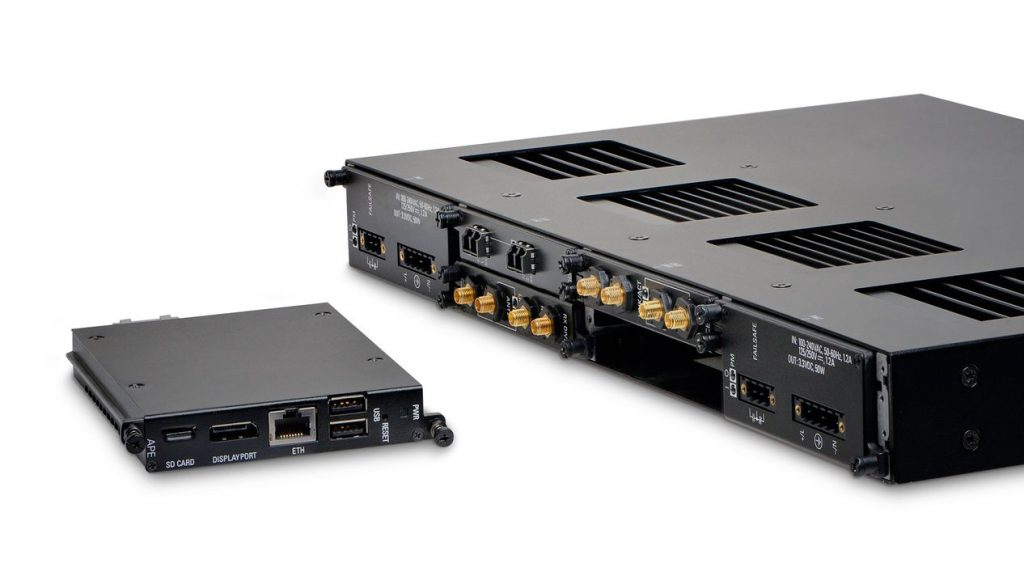1. EXECUTIVE SUMMARY
- CVSS v4 8.2
- ATTENTION: Exploitable remotely
- Vendor: Siemens
- Equipment: RUGGEDCOM APE1808
- Vulnerability: Truncation of Security-relevant Information
2. RISK EVALUATION
Successful exploitation of this vulnerability could allow remote attackers to bypass integrity checks.
3. TECHNICAL DETAILS
3.1 AFFECTED PRODUCTS
The following products of Siemens are affected:
- RUGGEDCOM APE1808: All versions
3.2 Vulnerability Overview
3.2.1 TRUNCATION OF SECURITY-RELEVANT INFORMATION CWE-222
The SSH transport protocol with certain OpenSSH extensions, found in OpenSSH before 9.6 and other products, allows remote attackers to bypass integrity checks such that some packets are omitted (from the extension negotiation message), and a client and server may consequently end up with a connection for which some security features have been downgraded or disabled, aka a Terrapin attack.
CVE-2023-48795 has been assigned to this vulnerability. A CVSS v3.1 base score of 5.9 has been calculated; the CVSS vector string is (AV:N/AC:H/PR:N/UI:N/S:U/C:N/I:H/A:N).
A CVSS v4 score has also been calculated for CVE-2023-48795. A base score of 8.2 has been calculated; the CVSS vector string is (CVSS4.0/AV:N/AC:H/AT:N/PR:N/UI:N/VC:N/VI:H/VA:N/SC:N/SI:N/SA:N).
3.3 BACKGROUND
- CRITICAL INFRASTRUCTURE SECTORS: Critical Manufacturing
- COUNTRIES/AREAS DEPLOYED: Worldwide
- COMPANY HEADQUARTERS LOCATION: Germany
3.4 RESEARCHER
Siemens reported this vulnerability to CISA.
4. MITIGATIONS
Siemens has identified the following specific workarounds and mitigations users can apply to reduce risk:
Users can resolve this issue by configuring the in-use SSH profile to contain at least one cipher and at least one MAC algorithm, which removes support for CHACHA20-POLY1305 and all Encrypt-then-MAC algorithms available (ciphers with -etm in the name) in PAN-OS software. See Palo Alto Networks’ upstream documentation https://security.paloaltonetworks.com/CVE-2023-48795 for additional guidance.
As a general security measure, Siemens recommends protecting network access to devices with appropriate mechanisms. To operate the devices in a protected IT environment, Siemens recommends configuring the environment according to Siemens’ operational guidelines for industrial security and following recommendations in the product manuals.
Additional information on industrial security by Siemens can be found on the Siemens industrial security webpage
For more information see the associated Siemens security advisory SSA-364175 in HTML and CSAF.
CISA recommends users take defensive measures to minimize the risk of exploitation of this vulnerability, such as:
- Minimize network exposure for all control system devices and/or systems, ensuring they are not accessible from the internet.
- Locate control system networks and remote devices behind firewalls and isolating them from business networks.
- When remote access is required, use more secure methods, such as Virtual Private Networks (VPNs), recognizing VPNs may have vulnerabilities and should be updated to the most current version available. Also recognize VPN is only as secure as the connected devices.
CISA reminds organizations to perform proper impact analysis and risk assessment prior to deploying defensive measures.
CISA also provides a section for control systems security recommended practices on the ICS webpage on cisa.gov/ics. Several CISA products detailing cyber defense best practices are available for reading and download, including Improving Industrial Control Systems Cybersecurity with Defense-in-Depth Strategies.
CISA encourages organizations to implement recommended cybersecurity strategies for proactive defense of ICS assets.
Additional mitigation guidance and recommended practices are publicly available on the ICS webpage at cisa.gov/ics in the technical information paper, ICS-TIP-12-146-01B–Targeted Cyber Intrusion Detection and Mitigation Strategies.
Organizations observing suspected malicious activity should follow established internal procedures and report findings to CISA for tracking and correlation against other incidents.
No known public exploitation specifically targeting this vulnerability has been reported to CISA at this time. This vulnerability has a high attack complexity.
5. UPDATE HISTORY
- July 11, 2024: Initial Publication
Source:
